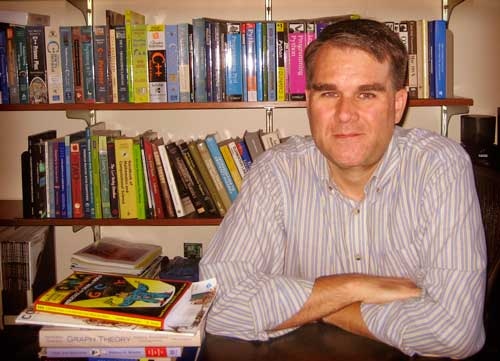What is computational science?
Computational science is applying techniques from computer science and mathematics to solve problems in the natural and social sciences. In a sense, you can think of it as “applied math and computer science.” As new technologies generate more and more data, computational methods are becoming as commonplace in science as traditional laboratory methods.
An increasing number of Denison students are working with faculty on computational projects. For example, I worked with Biology students to create software that can detect the presence of riboswitches (portions of messenger RNA) in DNA sequences. A Geology faculty member and I worked with a computer science student who wrote a program that models the growth of ancient organisms called stromatoporoids. In Physics, students have recently worked on projects involving protein folding and astrophysics. In Chemistry, a student wrote software to process spectroscopy data. In Geology, students have also written programs to analyze carbon isotope variation in oyster shells.
What do students who study computational science do when they graduate?
Computational science students can either go directly into industry or continue their studies in graduate school. Recent graduates have gone on to work in biotechnology, energy, and medical research. Others have pursued graduate studies in computational biology, biomedical informatics, systems biology, and computational physics.
What skills should I expect to develop while studying computational science?
A computational science concentration complements a major in the natural or social sciences. Each of Denison’s academic programs emphasizes a rigorous study of a discipline combined with fundamental skills in writing and quantitative reasoning. Students pursuing the computational science concentration will take additional courses in mathematics and computer science in which they will learn how to analyze and creatively solve computational problems from any discipline. Students may also work with a faculty member over the summer on an in-depth research project in their area of interest.
